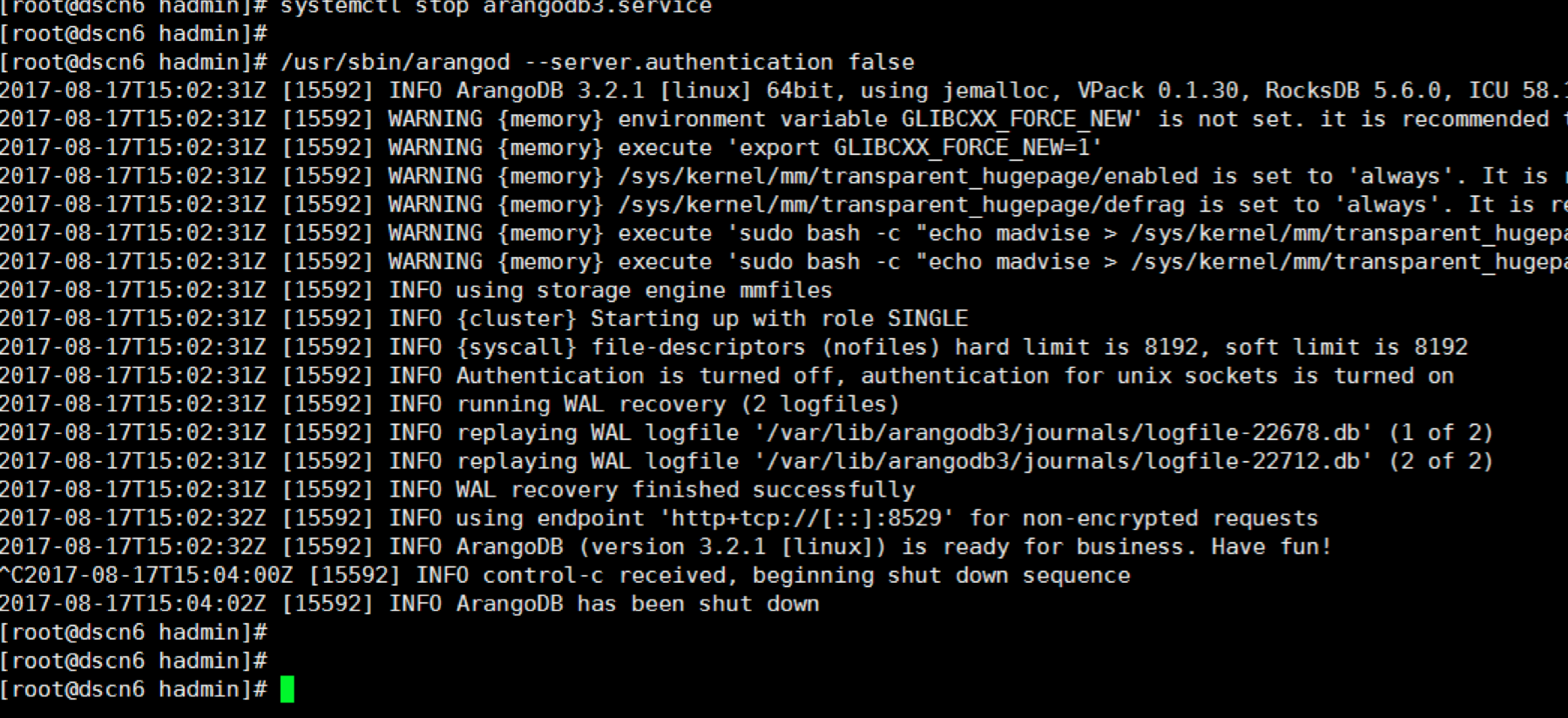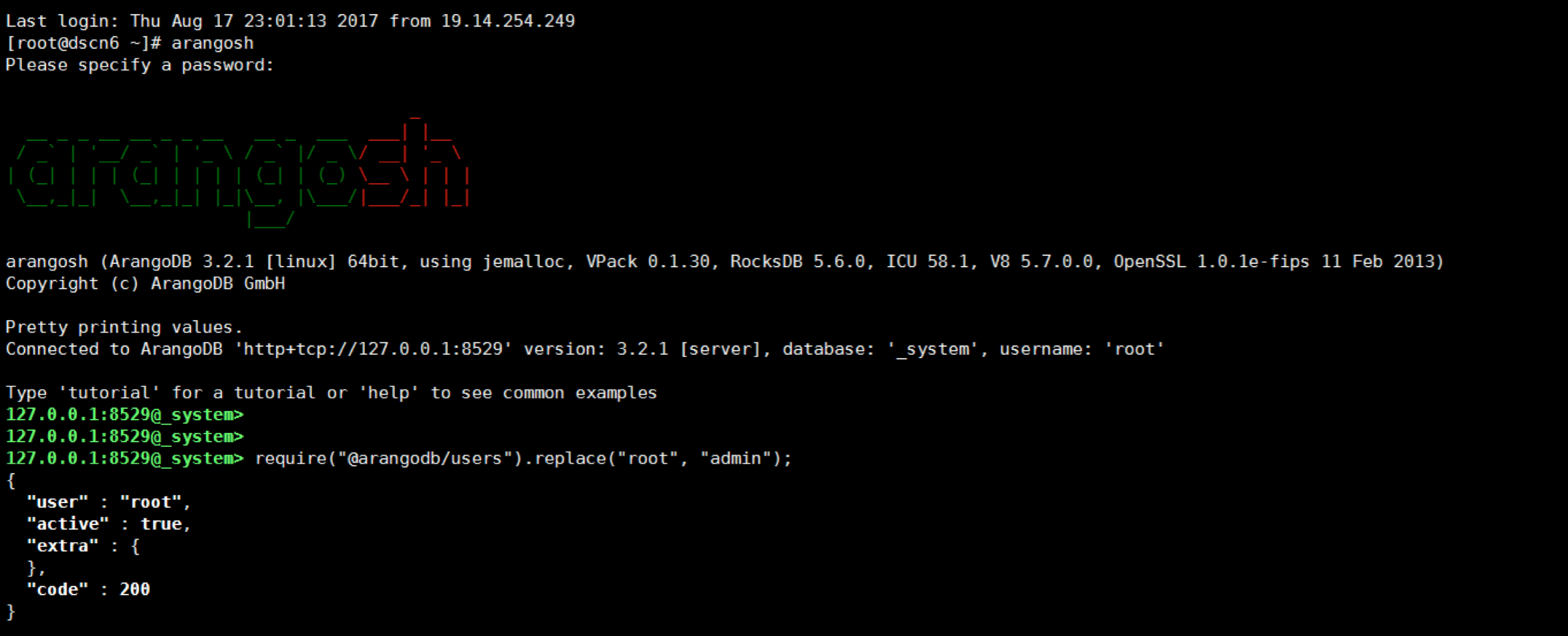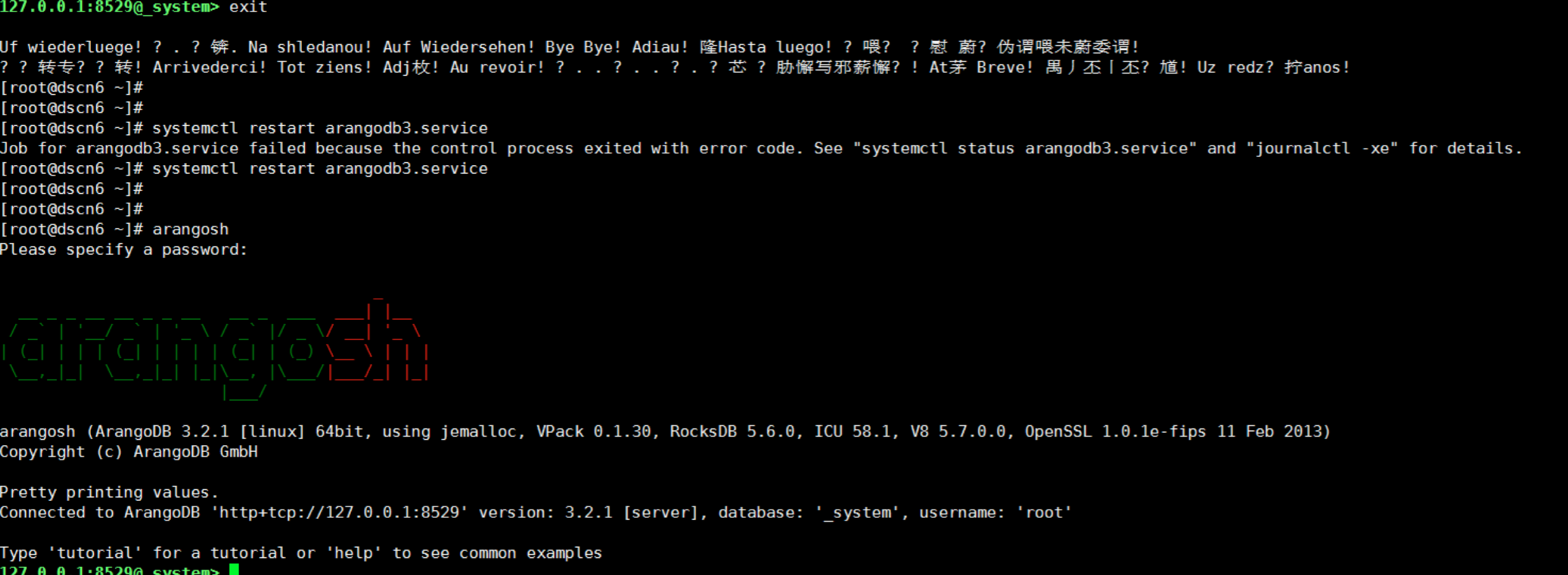笔记
wget http://112firshme11224.test.upcdn.net/blog/arangodb3-3.2.0-1.x86_64.rpmrpm -ivh arangodb3-3.2.0-1.x86_64.rpmsystemctl start arangodb3systemctl status arangodb3/etc/arangodb3/arangosh.conf
----------------------------------------------
[console]
pretty-print = true
[server]
endpoint = tcp://127.0.0.1:8529
authentication = true
# username = root
# password =
[log]
file = -
[javascript]
startup-directory = /usr/share/arangodb3/js
# ArangoDB configuration file
#
# Documentation:
# https://docs.arangodb.com/Manual/Administration/Configuration/
#
[database]
directory = /var/lib/arangodb3
# maximal-journal-size = 33554432
[server]
# Specify the endpoint for HTTP requests by clients.
# tcp://ipv4-address:port
# tcp://[ipv6-address]:port
# ssl://ipv4-address:port
# ssl://[ipv6-address]:port
# unix:///path/to/socket
#
# Examples:
# endpoint = tcp://0.0.0.0:8529
# endpoint = tcp://127.0.0.1:8529
# endpoint = tcp://localhost:8529
# endpoint = tcp://myserver.arangodb.com:8529
# endpoint = tcp://[::]:8529
# endpoint = tcp://[fe80::21a:5df1:aede:98cf]:8529
#
endpoint = tcp://[::]:8529
storage-engine = auto
# reuse a port on restart or wait until it is freed by the operating system
# reuse-address = false
authentication = true
# number of server threads. use 0 to make arangod determine the
# number of threads automatically, based on available CPUs
# threads = 0
# gather server statistics
statistics = true
# the user and group are normally set in the start script
# uid = arangodb
# gid = arangodb
uid = arangodb
[scheduler]
# number of threads used for I/O, use 0 to make arangod determine
# the number of threads automatically
# threads = 0
[javascript]
startup-directory = /usr/share/arangodb3/js
app-path = /var/lib/arangodb3-apps
# app-path = //arangodb3/apps
# number of V8 contexts available for JavaScript execution. use 0 to
# make arangod determine the number of contexts automatically.
# v8-contexts = 0
[foxx]
# enable Foxx queues in the server
# queues = true
# interval (seconds) to use for polling jobs in Foxx queues
# queues-poll-interval = 1
[log]
level = info
file = /var/log/arangodb3/arangod.log
[cluster]
[rocksdb]
# encryption-keyfile=/your-encryption-file
arangosh
# 进入arangodb bash
# 停止 `systemctl stop arangodb3`
# 不启用授权启动arangodb
/usr/sbin/arangod --server.authentication false
* 注意启动以后开启另一个`shell`窗口,当前的不要结束,图上面是已经`Control + C `了,这一步在什么时候做下面会说。 * 接下来执行`arangosh` 它会让你输入密码,直接会车即可。

* 在出现的arangodb shell 里面执行如下命令。
require("@arangodb/users").replace("root", "new-password");
#通过他的客户端进行直接修改`root`密码* 输入完密码,进行退出`exit` * 退出后去第一个shell窗口执行 `Control + C `。 * 然后在任意shell窗口进行访问`arangosh`,并且输入修改后的密码,即可成功登录arangodb。

* 以上操作经过验证可以直接拿去。 * Owner `breakEval13` * https://github.com/breakEval13